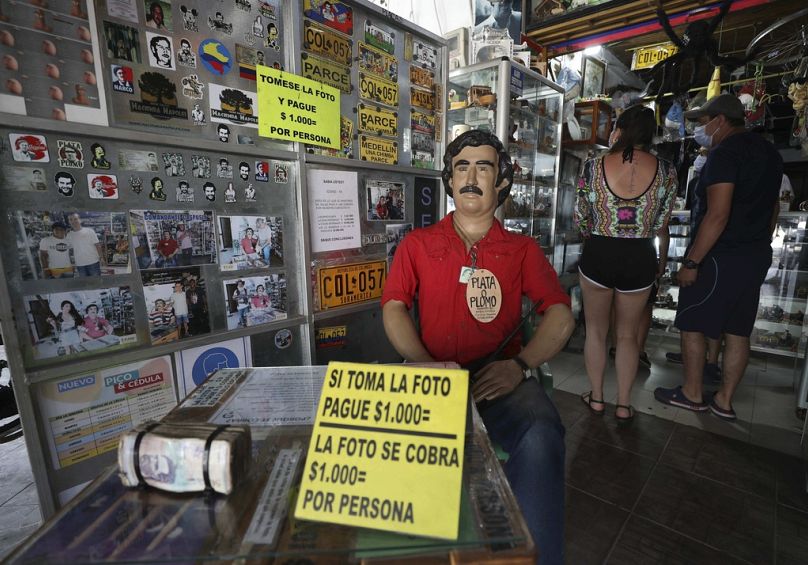In Georgia, you can find an astonishing array of Stalin-emblazoned merchandise. And now, Colombia is moving to ban souvenirs of Pablo Escobar. This feels like the right move...
 ADVERTISEMENT
ADVERTISEMENT
On a recent trip to Tbilisi, the capital of Georgia, I visited the city’s renowned flea markets in the hope of finding some marginally less tacky souvenirs than the ones in tourist shops.
Dry Bridge Market takes over Saarbruecken Bridge and the surrounding streets every morning with sellers displaying wares on permanent shelving, on rickety camping tables or just on cloths spread on the ground.
You can find floral-pattered crockery, daggers, old cameras, medals and woven rugs.
And you can also find an astonishing array of Stalin-emblazoned merchandise. There are magnets, colourful socks, badges, plates, prints and postcards plastered with the dictator’s face.
It was disconcerting. While it is true that some Georgians revere Stalin as a heroic leader, the majority of people I talked to on my trip - from millennial bartenders in the capital to family winegrowers in the countryside - spoke of the Soviet regime as a dark blot in the country’s history.
Josef Stalin was born in Gori, a town near Tbilisi, and his totalitarian government has been widely condemned for its violent repressions, ethnic cleansing, executions and famines resulting in the deaths of millions.
That vendors sell and tourists delight in buying souvenirs bearing his face, as you might of Queen Elizabeth in London or Maradona in Naples. It seemed ignorant and insensitive.
What’s more, on magnets and postcards Stalin’s face appears beside images of landmarks and colourful ‘Georgia’ writing as though he is a cherished national icon.
On other items like the socks, his likeness is rendered as a cartoon, making him into an almost jolly figure.
There is a fascination with objects bearing his image by tourists from Europe and North America - or perhaps a better word is fetishisation.
I found a similar situation, albeit on a smaller scale, in Romania. One magnet had an image of the dictator Nicolae Ceaușescu and the words “I’ll be back” written beneath.
Colombia moves to ban souvenirs of Pablo Escobar
While souvenirs like this may seem lighthearted and amusing, they are rightly prompting a backlash in some places.
Souvenirs depicting the late Colombian drug lord Pablo Escobar could be banned in Colombia if legislators approve a bill introduced this week in the nation’s congress.
Escobar ordered the murders of an estimated 4000 people in the 1980s and early 1990s, as he established the powerful Medellin cartel and amassed a $3 billion ((€2.75 billion) fortune that made him one of the world’s richest people at the time.
The proposal is criticised by vendors who sell his merchandise to tourists from around the world, but backed by those who believe the country should shed its image of mafia bosses.
The bill proposes fines of up to $170 (€155) for vendors who sell merchandise that depicts Escobar and other convicted criminals, and would also enable police to fine those who wear t-shirts, hats and other garments that “exalt” the infamous drug lord.
Like Escobar, when you stamp Stalin’s face on some socks for tourists to buy for a laugh, it aids the softening of his image and begins to divorce it from its associated historical atrocities.
Other countries should follow Colombia's lead and consider greater regulation of tourist tat that glorifies and glamourises controversial historical figures.











